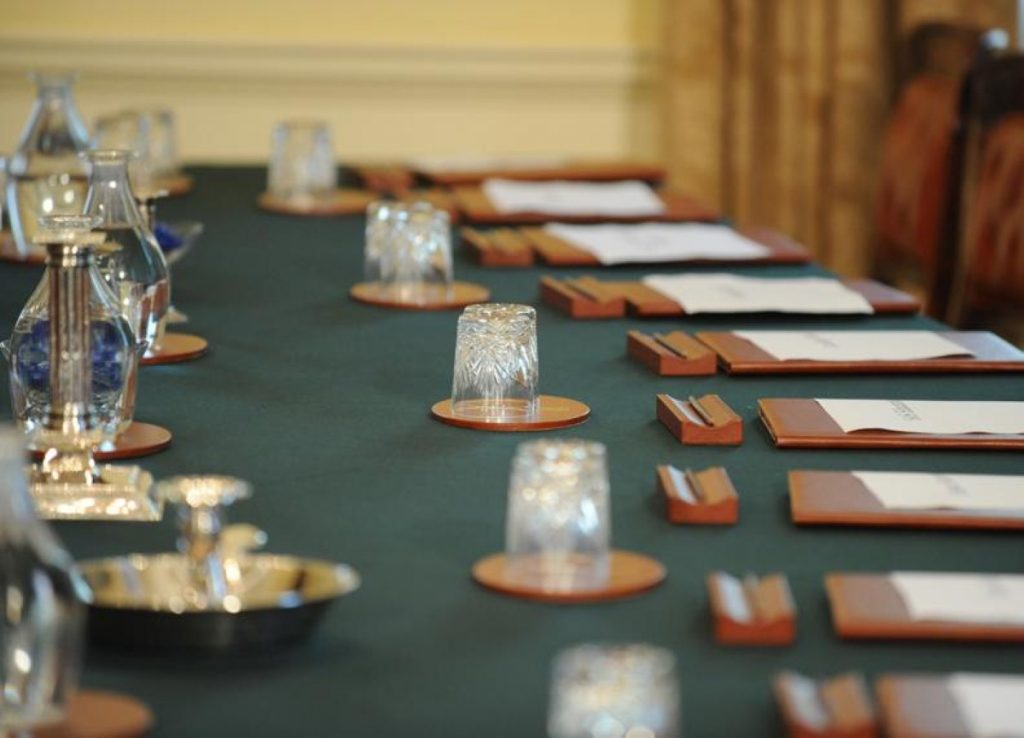Comment: More women in Cabinet will reduce men’s group think failings
By Daisy Sands
In 2008, Tory leader David Cameron pledged to give a third of ministerial places to women by the end of his first parliament. Back then, 2015 must have seemed like a long way off. But here we are, 50 months into his 60 month fixed-term tenure and that target is a long way from being met. Before this shake-up, women make up just a fifth of the total ministerial list and a paltry 14% of those in Cabinet.
But today has seen considerable progress toward meeting this goal, with several female MPs winning promotion. This includes at Cabinet where three additional women are expected to be shuffled in, boosting the percentage of women to 27%.
Whilst such a move doesn't hit Cameron's target bang on, it does nonetheless mark an important shift in the right direction. Despite the inevitable heckles of tokenism and of a last-minute attempt to appeal to women voters, this increase in women at the top table should be warmly welcomed for two key reasons.


Firstly, such a move is important symbolically – both as a signifier to society at large that women are as competent, capable and ambitious as men when it comes to holding positions of power, and to individual women and girls who may aspire to hold such roles themselves. As the adage goes, you can't be what you can't see.
Secondly, it is simply not right that political decisions of national importance, from how to rebuild the economy to whether we go to war, are being made with so few women round the table. Aside from being democratically unjust, this means poorer decision-making – every organisation benefits from better representation of women by avoiding group think and narrow perspectives. In business, companies with more women on their boards were found to outperform their rivals with a 66% higher return on invested capital.
However, despite the importance of this short-term improvement, it is crucial that all parties continue to scrutinise and take firm action to improve the status of women in their own ranks, and to challenge and address the wider culture in both Westminster and the media that puts women off entering, and staying in the profession.
A report published on Monday by the APPG on Women in Parliament once again highlights the many hurdles women face when entering elected office – from discrimination at the selection process (where a survey of 144 sitting and former MPs found a whopping 67% faced discrimination during their selection process) to un-family friendly sitting hours and the deeply sexist culture that continues to pervade the Westminster bubble.
The report also highlights the role that the media plays in holding women back – both by under-reporting their contribution to politics, and through the sexist nature of much coverage that focuses more on female politician's shoes than their views. Research presented at a meeting of the APPG on Sex Equality held by the Fawcett Society last week found there has been a marked decline in the voices of female politicians in the media – in 1999, 20% of political quotes in the press were from women, compared with only 13% in 2012.
It is clear that action is needed across the board, and alongside supporting the work of the APPG on Women in Parliament who call for a range of measures such as more support for MPs with caring responsibilities and a review of sexism in the media, Fawcett is also calling on all parties to draw up and implement a clear action plan after the 2015 election to increase the number of women at all levels of elected office, with a view to achieving equal levels of representation by 2020.
This reshuffle signals a small but important step toward greater equality in parliament. But, as we have heard from the APPG on Women in Parliament, huge strides are still needed if we are to reach the goal of equal representation of women and men in the UK's corridors of power.
Daisy Sands is head of policy and campaigns at the Fawcett Society
The opinions in politics.co.uk's Comment and Analysis section are those of the author and are no reflection of the views of the website or its owners.

